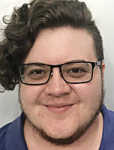
‘Shrek’ offers more than a fairy tale
I want to make this clear up front before I flex my literary analysis muscles; I didn’t find “Shrek” funny growing up. Fart jokes were never my thing.
But I also remember being excited to go see at least two and three — I think four came out during my anti-animation phase — when they came out in theaters because I enjoyed the story.
I had the chance to see local groups perform the stage production multiple times and somehow never went, even though the soundtrack has been on my iTunes for years and I scream-sing all the lyrics every time it comes on in the car.
I also haven’t watched the musical on Netflix, and I don’t know what’s wrong with me when it comes to this show.
While I was working on writing my story this week about the Center Stage production, I remembered a class I had in college.
It was an auditorium-size film class, but we also had smaller discussion classes led by a teacher’s assistant.
I’m not sure how we got on this subject, but my TA was talking about how he’d seen “Shrek the Musical” and took issue with one line toward the end of the show.
“You’ve never read a book like this, but fairy tales should really be updated,” said by Shrek in the song Big Bright Beautiful World (reprise).
For context, in this song Shrek realizes that his parents were wrong when they told 7-year-old Shrek there would be nothing but isolation, fear and hatred out in the world for him.
“It’s a big bright beautiful world, but not for you,” is a hard thing for a 7-year-old to hear.
My TA talked about having an issue with that line, because, I think, he took updated to mean rewritten. He talked about the posterity of literary history.
I think he missed the point.
I think if the line was talking about rewriting fairy tales, I could understand why somebody would argue posterity as a reason against, but the history tells a different story.
“Shrek” makes a commentary on Disney fairy tales, which are themselves rewritten to various degrees. No Disney film depicts a fairy tale the way Hans Christian Andersen or the Brothers Grimm wrote it in the 1800s.
It’s next to impossible to know how accurate their stories were to the original source material, told by traveling story tellers.
Historians have traced most of these back about 4,000-6,000 years, according to the BBC.
So, “Shrek” is a parody of a retelling of a retelling of a retelling.
These retellings have changed with time. Brothers Grimm stories were told to kids, but nowadays would be classified as horror.
The Disney stories have merit, but are not historical or free of criticism.
That’s what “Shrek” is, a criticism that sometimes what we now consider classic fairy tales are limiting. They present characters as good or bad without considering gray areas.
The princess is always skinny and delicate with long, usually straight, hair and a tragic back story.
She gets rescued by a steroetypically attractive young prince who’s also skinny and delicate, but knows how to use a sword.
Your villain is typically not human in some way and are frequently social outcasts even if they don’t seem it at first or are at least despised by the main character.
Fiona is feisty and fights for herself. Shrek shows it doesn’t matter your size or what people think of you, you can be a hero. Dragon is a working woman who wants somebody to love her for who she is.
That’s what “fairy tales should really be updated means.” Not that the ones we have shouldn’t exist, but that we should have fairy tales and characters that don’t fit that mold, but are equally valid.
If you haven’t seen Shrek since it came out 19 years ago, it’s worth rewatching — whether the movie or stage production — with adult eyes. There’s more there than fart jokes.
_____
Michael Shine is a staff writer and can be reached at mshine.dar@gmail.com
Posting a comment requires free registration:
- If you already have an account, follow this link to login
- Otherwise, follow this link to register
